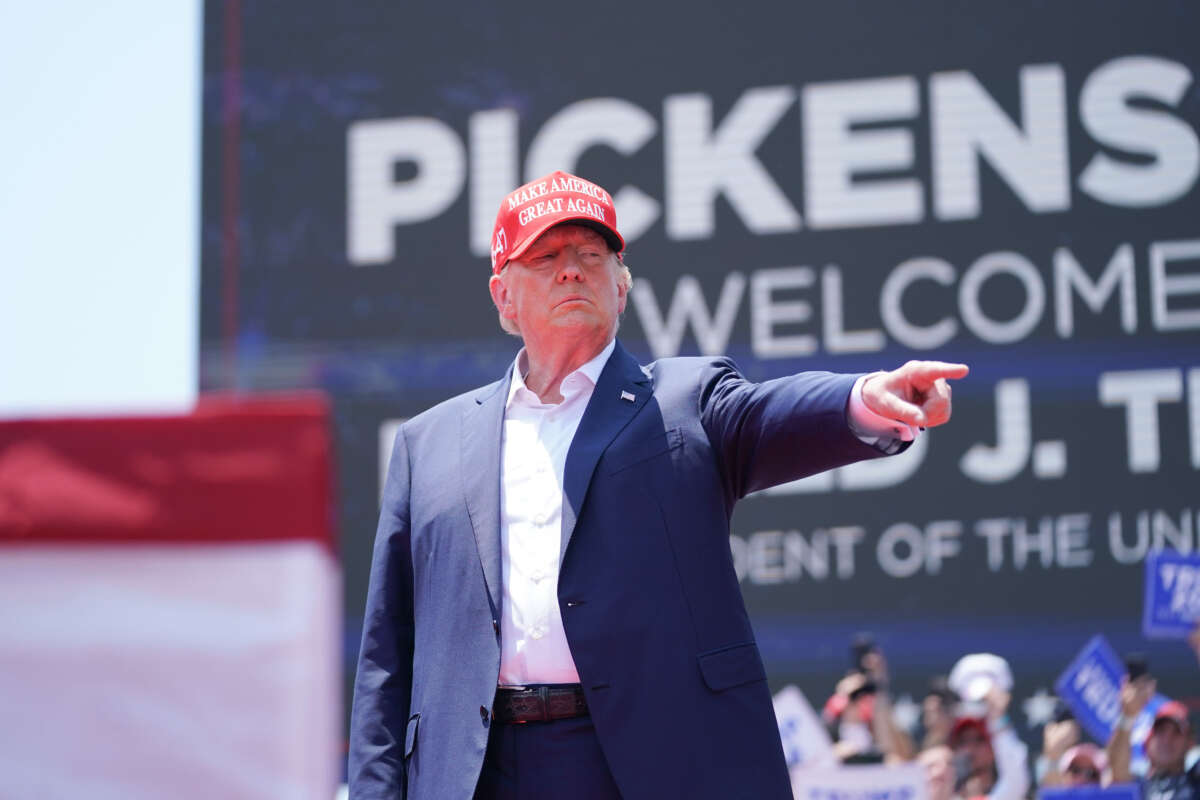Former President Donald Trump, who was indicted on dozens of federal charges earlier this month, is running to become the Republican Party’s nominee for president in 2024 — despite insisting, in 2016, that people who have been indicted should be barred from running for president, as it would create an “unprecedented constitutional crisis.”
Trump’s comments, which were reported on years ago, were dug up this week by CNN’s KFile, less than one month after the Department of Justice filed 37 charges against him for improperly transporting White House documents to his Mar-a-Lago estate in Palm Beach, Florida, upon leaving office.
Days before Election Day 2016, Trump, as the Republican nominee for president, discussed at a number of campaign rallies how the FBI had briefly reopened an inquiry into the handling of emails on a private server by his Democratic opponent, Hilary Clinton. On November 6, the FBI reaffirmed previous conclusions about Clinton, saying that while her actions were problematic, they weren’t illegal or worth pursuing charges over.
In the run-up to that conclusion, however, Trump assumed that Clinton would be charged, and told his supporters that charges against a presidential candidate or potential president-elect would be harmful for the country.
“If she were to win, it would create an unprecedented constitutional crisis that would cripple the operations of our government,” Trump said at a rally on November 3, 2016, in Concord, North Carolina. “She is likely to be under investigation for many years.”
Trump also stated that Clinton “has no right to be running” based on the inquiry into her actions.
Days later, on November 5, in Reno, Nevada, Trump said that the potential of having a “sitting president under felony indictment” would “grind government to a halt.” On the same day in Denver, Colorado, Trump said that her impending indictment — which never came to fruition — would make it “virtually impossible for her to govern.”
Trump made similar comments on social media, tweeting on November 1 that Clinton “should not be allowed to run for president” based on the allegations. On November 2, he wrongly declared that Clinton was “guilty” and “cannot run” for president.
Trump, who is now a candidate for president in 2024, has been indicted with 37 federal felony counts, as well as 34 charges in the state of New York. Trump has denounced the charges against him as political and unfounded, although several legal analysts have concluded that the allegations against him by investigators are quite damning.
While the indictment charges against Trump don’t disqualify him from running for president in 2024, they will likely make his campaign more challenging, as they will be looming over him in the GOP primaries and potentially in the general election.
Press freedom is under attack
As Trump cracks down on political speech, independent media is increasingly necessary.
Truthout produces reporting you won’t see in the mainstream: journalism from the frontlines of global conflict, interviews with grassroots movement leaders, high-quality legal analysis and more.
Our work is possible thanks to reader support. Help Truthout catalyze change and social justice — make a tax-deductible monthly or one-time donation today.
